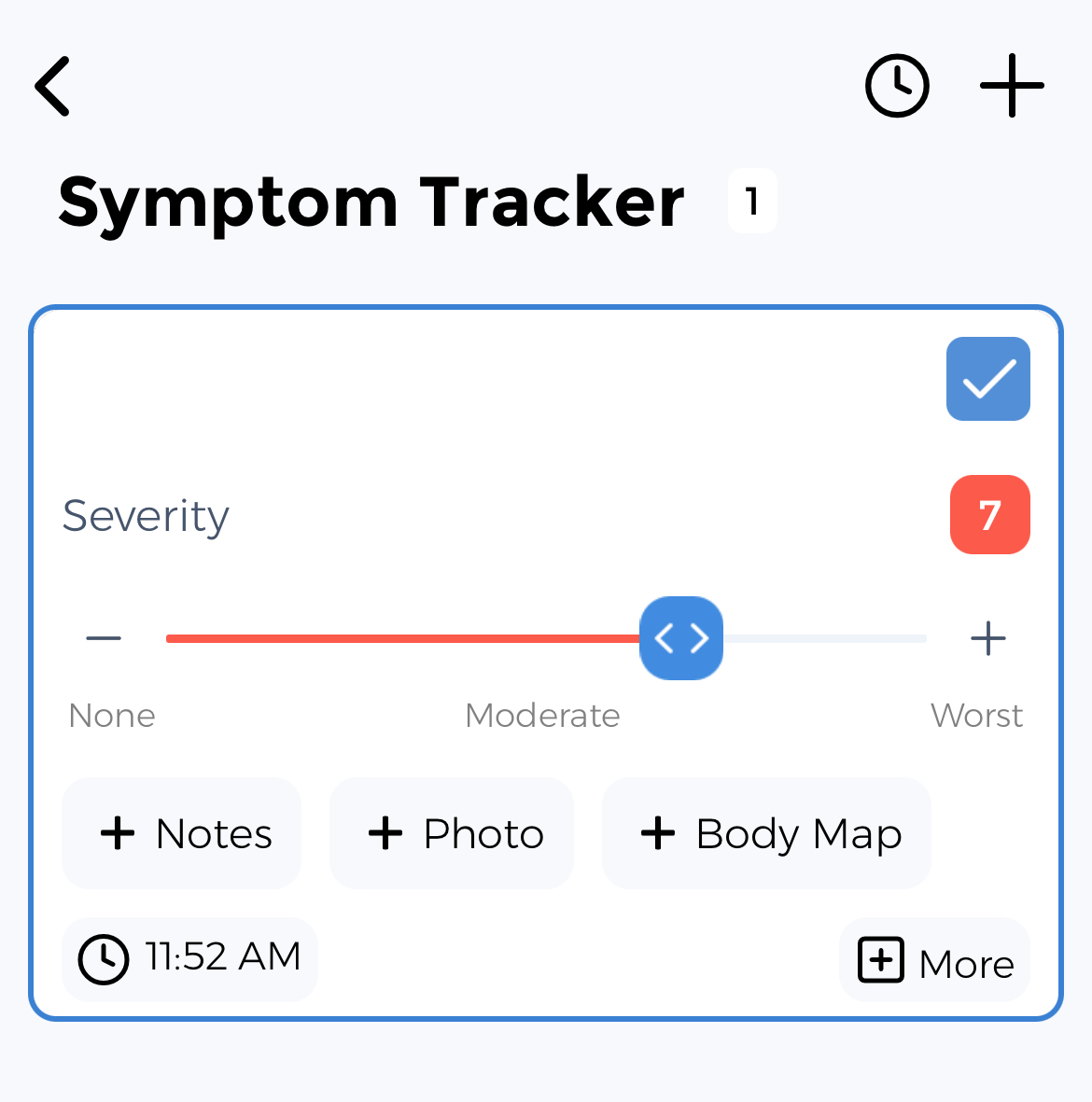Hypocalcemia Symptom Tracker: Your Health Assistant
Living with Hypocalcemia means dealing with Numbness and tingling (especially around mouth, fingers, toes), Muscle cramps, spasms (tetany), Muscle aches, and more. But here's the truth: Data is your most powerful tool. Every logged symptom reveals patterns—so you can take informed action.
Hypocalcemia is a condition characterized by lower-than-normal levels of calcium in the blood. It can be caused by various issues, including parathyroid gland problems, vitamin D deficiency, kidney disease, or certain medications. Tracking neurological symptoms, calcium levels, and medication adherence is key.
Key Hypocalcemia Symptoms You Should Track
Struggling with symptoms like these? Tracking them reveals patterns, triggers, and how they impact your daily life.
Numbness and tingling (especially around mouth, fingers, toes)
Muscle cramps, spasms (tetany)
Muscle aches
Fatigue, weakness
Mood changes (irritability, depression)
Seizures (severe)
Abnormal heart rhythms (severe)
Dry skin, brittle nails (chronic)
Track Your Hypocalcemia Treatments
Tracking how these common treatments affect your symptoms can help you and your healthcare provider optimize your care plan:
Our tracker helps you monitor when you take medications and how they affect your symptoms over time.
Standardized Hypocalcemia Assessments
Complete these evidence-based assessments in the App to measure your severity and monitor your progress:
⚡ Knowledge Is Your Superpower
The difference between feeling overwhelmed by Hypocalcemia and feeling in control starts with data. When you track your symptoms, you transform uncertainty into clarity. Every data point brings you closer to understanding your unique patterns.
It's free to try for anyone—whether you're managing your own condition, supporting a child, helping an aging parent, or assisting a partner. Our tracker adapts to your specific role in the health journey.
How the CareClinic Hypocalcemia Symptom Tracker Adapts to Your Needs
Adults
Caregivers
Parents of Children
Young Adults
Your Complete Hypocalcemia Management Toolkit
Uncover Patterns & Insights
Map your Hypocalcemia symptoms like a detective solving a case.
Understand Your Medication's Impact
Turn guesswork into strategy. See how treatments affect your well-being with clear health insights.
Objectively Measure Your Progress
Use clinically validated tools to objectively measure your progress.
Other Tools You May Like...
Also Supports Other Conditions Like
Hypoparathyroidism Tracker
Hypoparathyroidism warriors use our tracker to monitor tingling, muscle cramps.
Chronic Kidney Disease Tracker
Chronic Kidney Disease warriors use our tracker to monitor fatigue, sleeping problems.
Hypomagnesemia (Low Magnesium) Tracker
Hypomagnesemia (Low Magnesium) warriors use our tracker to monitor Muscle cramps or spasms, Tremors.
Success Stories from Our Community
"When traditional approaches weren't enough, this tracker finally helped me started making progress with treatment. I can now understand how my medications actually affect me which has changed everything."
"My with Hypocalcemia became so much easier once I started tracking. The medication tracker (Calcium/Vit D) made it easy to spot connections between Fatigue, weakness and physical activity, giving me confidence I never had before."
Take Control of Your Hypocalcemia Journey
Transform from feeling like a passive patient to becoming an informed self-advocate. Join thousands who've discovered new insights about their condition.
Designed by people who understand the daily challenges of managing chronic conditions, we're here to support you and your ❤️ ones.
Download Your Hypocalcemia Tracker NowYour Data is Protected
Private & Secure
HIPAA Compliant
GDPR Compliant
Never Sell Data
Your data is yours: You get full control over who can view your information. CareClinic keeps all your data secure and encrypted.
References based on studies by:

